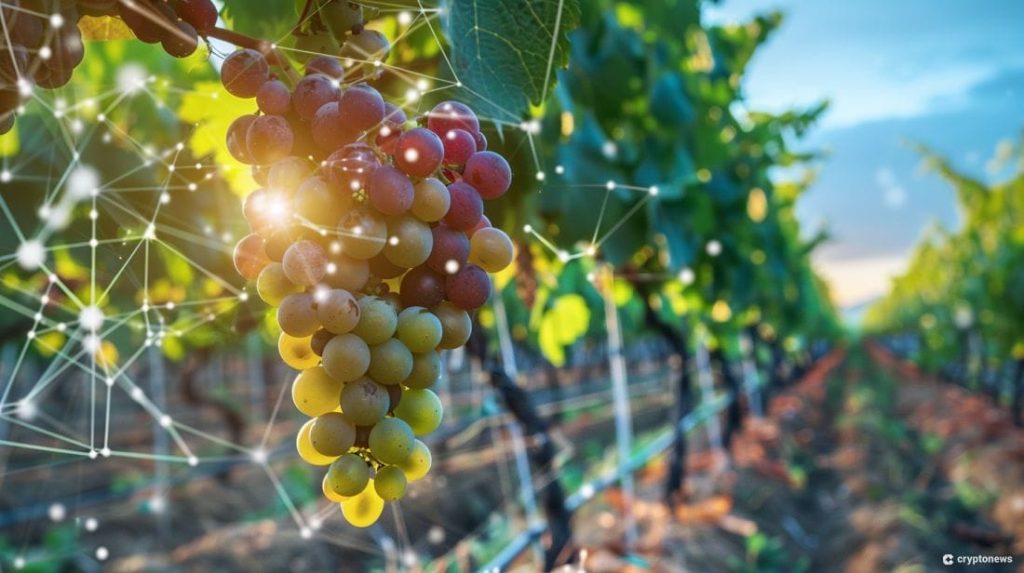Louis-Vuitton (LVMH) owned wine producer Château d’Esclans and spirits-focused blockchain marketplace BlockBar recently collaborated to launch an NFT edition of the vineyard’s renowned Garrus rosé. This marks a historic moment as the first-ever sale of a barrel of Garrus using BlockBar’s innovative leaderboard technology. The offering includes the opportunity for wine collectors and aficionados to purchase a quarter barrel of Garrus, equivalent to 200 750ML bottles of Château d’Esclans 2023. Garrus rosé is considered the vineyard’s finest wine, made from 100-year-old vineyard grapes and fermented in new-age oak barrels. Buyers of the NFT will have the option to choose from three bottle sizes and will receive a VIP tour of the winery and vineyards, lunch with the winery’s founder or Vice President, and their name etched on a barrel. Bidding for a portion of the NFT Garrus rosé bottle will start at $22,000 and closes on May 31st.
LVMH’s investment in the NFT-linked Château d’Esclans signifies the luxury giant’s foray into the metaverse and NFT space. This move aligns with the company’s history of developing luxury digital products in the web3. In 2021, LVMH introduced Louis: The Game, a free-to-play NFT offering that educated players about the brand and awarded them with digital rewards. CEO Bernard Arnault emphasized the company’s focus on metaverse expansion in 2022, stating that it could have a positive impact if done well. By June 2023, LVMH launched its Web3 application VIA project, featuring a $41,000 digital chest inspired by the iconic LV trunk, known as “The Treasure Trunk.” More recently, the company announced the sale of an NFT-linked varsity jacket for VIA NFT holders in collaboration with Pharrell Williams. The collaboration between BlockBar and Château d’Esclans indicates a growing trend of merging Web3 technologies into the luxury food and beverage sector.
Château d’Esclans’ NFT Garrus rosé offering on BlockBar showcases the vineyard’s commitment to innovation and technology in the wine industry. The partnership allows for a unique opportunity for wine collectors and enthusiasts to own a piece of history through the purchase of a portion of the coveted Garrus rosé. Along with the NFT purchase, buyers will receive exclusive benefits such as a VIP tour of the winery and vineyards, lunch with key figures from the vineyard, and their name etched on a barrel. The NFT offering includes different bottle sizes and a starting bid of $22,000, highlighting the exclusivity and luxury associated with the product. This collaboration exemplifies the intersection of traditional luxury industries with cutting-edge technologies like blockchain and NFTs.
The NFT-linked vineyard offering by Château d’Esclans and BlockBar represents a unique and innovative approach to wine sales and collecting. By leveraging blockchain technology and NFTs, the vineyard has opened up a new avenue for wine enthusiasts to engage with and acquire luxury wines like the Garrus rosé. This partnership also reflects a broader trend in the luxury sector towards integrating digital technologies into traditional offerings. LVMH’s investment in Château d’Esclans and its exploration of the metaverse and NFTs further demonstrate the company’s commitment to staying at the forefront of innovation in the luxury market. As the NFT space continues to grow and evolve, collaborations like this between luxury brands and digital platforms are likely to become more prevalent, reshaping the way consumers interact with and collect luxury goods in the digital age.
The collaboration between BlockBar and Château d’Esclans highlights the increasing popularity and adoption of NFTs in the luxury food and beverage industry. By offering a unique NFT edition of its renowned Garrus rosé, Château d’Esclans has tapped into a new market of tech-savvy wine collectors and enthusiasts. The NFT purchase includes exclusive benefits and experiences, adding an element of luxury and exclusivity to the offering. This innovative approach to wine sales not only attracts a new generation of consumers but also showcases the vineyard’s commitment to embracing technology and digital innovation in the wine industry. As more luxury brands and companies explore the potential of blockchain and NFTs, we can expect to see further collaborations and partnerships that leverage these technologies to create unique and immersive experiences for consumers in the luxury sector.














